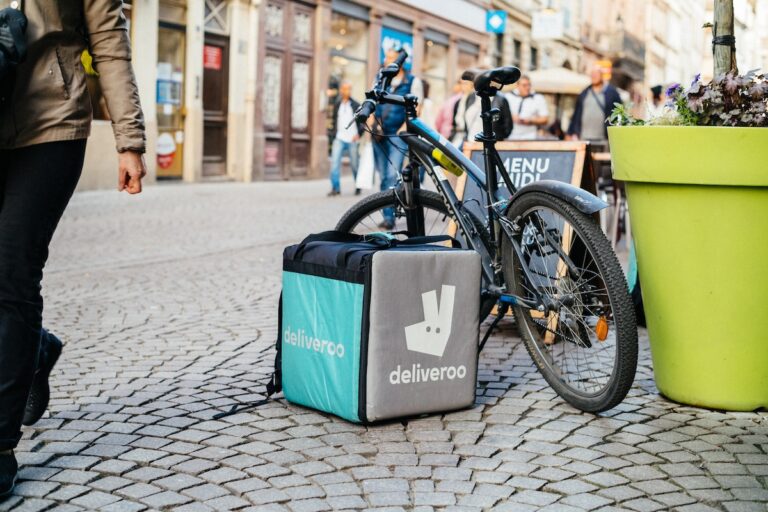The Supreme Court has recently handed down its decision in a case brought on behalf of Deliveroo riders seeking to recognise the IWGB union under the statutory recognition procedure for collective bargaining purposes. While that particular issue was specific to the Deliveroo case, the Court’s reasoning and decision has broader implications for all business operators involved in flexible labour models. Kate Palka, Lawyer at The Legal Director, explains the impacts of yesterday’s judgment in more detail:
Employment status in the gig economy has been under scrutiny for almost as long as the platforms have  existedand courts and tribunals have historically set out a number of factors to take into account in deciding whether individuals should be regarded as ‘employees’ or ‘workers’, or if they are genuinely self-employed. While the original model was one of self-employment, this has been challenged successfully in many cases, notably claims against Uber and Pimlico Plumbers. These established that some gig economy workers should not be classified as self-employed, entitling them to certain employment rights such as holiday pay and the national minimum wage, protection from discrimination and the right to unionise.
existedand courts and tribunals have historically set out a number of factors to take into account in deciding whether individuals should be regarded as ‘employees’ or ‘workers’, or if they are genuinely self-employed. While the original model was one of self-employment, this has been challenged successfully in many cases, notably claims against Uber and Pimlico Plumbers. These established that some gig economy workers should not be classified as self-employed, entitling them to certain employment rights such as holiday pay and the national minimum wage, protection from discrimination and the right to unionise.
However, in the Deliveroo case, the existence of an “almost unfettered” right to use other people to complete their orders was fatal to the drivers’ case, and the court decided that they were correctly described as self-employed – a substantial victory for Deliveroo.
This new reinforcement of the self-employed status of gig economy workers clarifies that a genuine right of substitution should defeat a claim that a worker is entitled to those certain employment rights. With this in mind, any employers operating a model of flexible and independent work arrangements may wish to consider restructuring their contractual arrangements to include a clear and unconditional right of substitution.
Other factors to be weighed when assessing the nature of the relationship between businesses and their gig workers include whether there is any objection to them working simultaneously for competitors and whether they are truly free to work or not as convenient to them and are not penalised for failure to accept work. Also relevant are how stringent are the levels of control over the workers and how working arrangements are worked out in practice: all these issues can significantly affect whether someone is considered to be a self-employed contractor.
Notably, the Deliveroo judgment is in contrast with the position in other European countries, where, for example, the Dutch Supreme Court found in March this year that Deliveroo riders qualified as employees under Dutch law. In Spain, recently implemented “Riders’ law” provides for permanent employment contracts, and the EU has announced that it will be creating new law to help millions of gig workers gain the status and rights of an employee, rather than being considered self – employed.
Since Brexit, the UK government has no obligation to follow changes made to EU laws, but the Deliveroo and other cases have raised a wider debate about whether the existing legal framework adequately protects the rights and interests of gig workers or if reform is necessary. In response to this, Labour had pledged to create a single status of “worker” for everyone except the genuinely self-employed, although the party’s policy forum in July changed the wording of the pledge in what was seen generally as a watering down of its commitment. Nevertheless, they have also pledged to abolish zero hours contracts and contracts without minimum number of guaranteed hours, which could have significant implications for how employers engage their workers, in the gig economy and beyond.
Another far-reaching change for 2024 is the right for workers (but not the self-employed) whose working pattern lacks predictability to request a more predictable working pattern, under the Workers (Predictable Terms and Conditions) Act 2023. This is targeted at zero hours contracts and other atypical work, but it is possible that other arrangements will be caught, such as a contract which specifies core hours of work but says these can be varied by management as required.
This applies only to workers and not the genuinely self-employed and it represents another reason why businesses should be examining their contractual arrangements in the light of the Deliveroo decision, to identify whether changes need to be made to clarify the status of their workers and to meet the unique dynamics of this emerging sector.


1 Comment
Pingback: How to Hire International Employees: Key Compliance and Global Solutions - RecruitGo